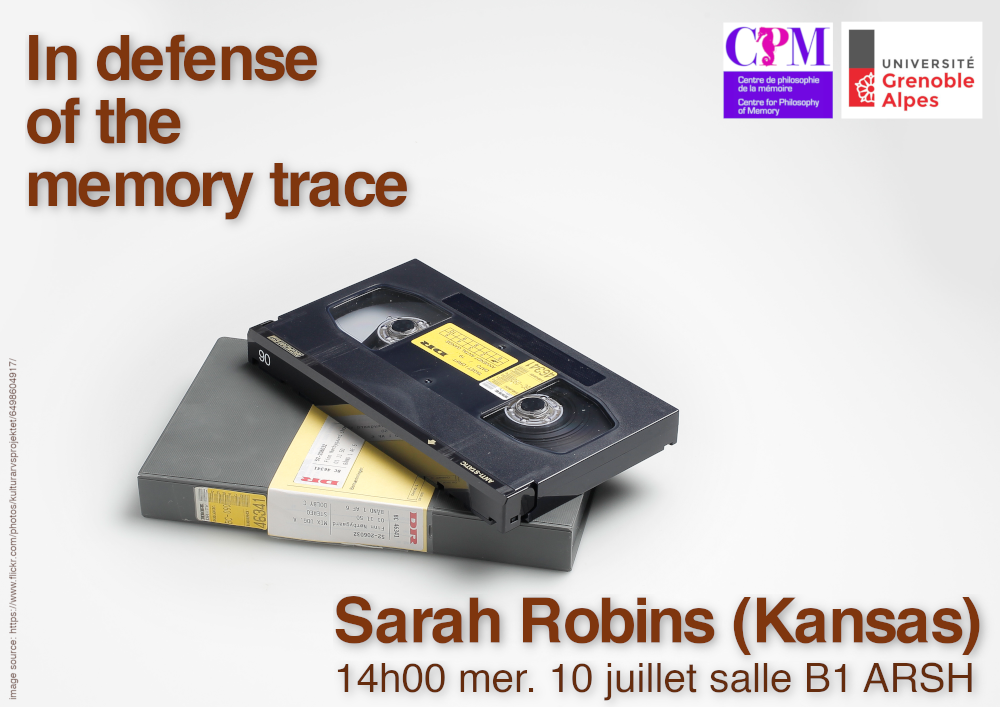- Imprimer
- Partager
- Partager sur Facebook
- Partager sur X
- Partager sur LinkedIn
Séminaire, Séminaire / CPM
Le 10 juillet 2019

Sarah Robins (University of Kansas)
Abstract: Memory traces have a long and controversial history. They have been a part of our theorizing about memory for as long as there has been theorizing about memory, but their role has always been both divisive and elusive. The question of whether remembering involves memory traces serves as something of a fault line along which views of memory can be sorted, including the current division between causal and post-causal theories (Michaelian & Robins, 2018). And those who endorse memory traces often rely on metaphors to illustrate them, leaving their role in a theory of remembering unclear. In this paper, I argue that memory traces are essential to a theory of remembering, but that no satisfactory, general account of memory traces has yet been given. I do so by introducing four desiderata. A theory of remembering should be able to explain/account for: 1) memory’s distinctiveness, 2) distinctive remembering, 3) memory’s theoretical flexibility, and 4) flexible remembering. Non-trace theories fail to explain 1) and 2). Existent trace theories explain 1) and 2), but fail at 3) and 4). I conclude with a sketch of a general account of memory traces that can accommodate all of these explanatory desiderata.
Date
14h
Localisation
Salle B1 (ARSH)
- Imprimer
- Partager
- Partager sur Facebook
- Partager sur X
- Partager sur LinkedIn